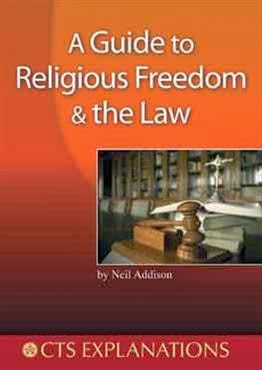The Marriage (Same Sex Couples) Act 2013 has been passed into law and seems likely to be brought into force in 2014 so allowing Same Sex Marriages in England and Wales.
There will no doubt be plenty of time to consider the full implications of the Act but one point in it is worth noting for its historical significance. Section 1(3) of the Act says
(3) No Canon of the Church of England is contrary to section 3 of the Submission of the Clergy Act 1533 (which provides that no Canons shall be contrary to the Royal Prerogative or the customs, laws or statutes of this realm) by virtue of its making provision about marriage being the union of one man with one woman.
This section did surprise me because I have to confess I had not realised that the famous "Submission of the Clergy" had led to an Act of Parliament that was still in force 480 years later.
The "Submission of the Clergy was one of the defining moments of the English Reformation where the Bishops of England, the honourable exception of Bishop (Saint) John Fisher surrendered the independence of the English Church to the demands of King Henry VIII.
The reason why the 1533 Act was called from the depths of its legal tomb is because the 1533 Act laid down that no Canons (ie laws) of the Church of England could be (my emphasis)
"contraryaunt or repugnant to the Kynges prerogatyve Royall or the customes lawes or statutes of this Realme"
Without the proviso set out in s1(3) above the Church of England would not have been able to prohibit Same-Sex Marriages in Anglican Churches once Same-Sex Marriage became part of the lawes or statutes of this Realme"
How long the Church of England will be able to, or indeed will want to, prohibit Same-Sex Marriages in Anglican Churches is difficult to predict though I personally expect it to be only a matter of a few years. After all if the Church of England wants to remain the State Church of the English Nation then it is difficult for it to do so and at the same time be fundamentally out of kilter with the laws and indeed the culture of that Nation which is of course exactly the problem that the Church faced in 1533 when it "submitted" to state power without a fight.
Wednesday 24 July 2013
Subscribe to:
Posts (Atom)


